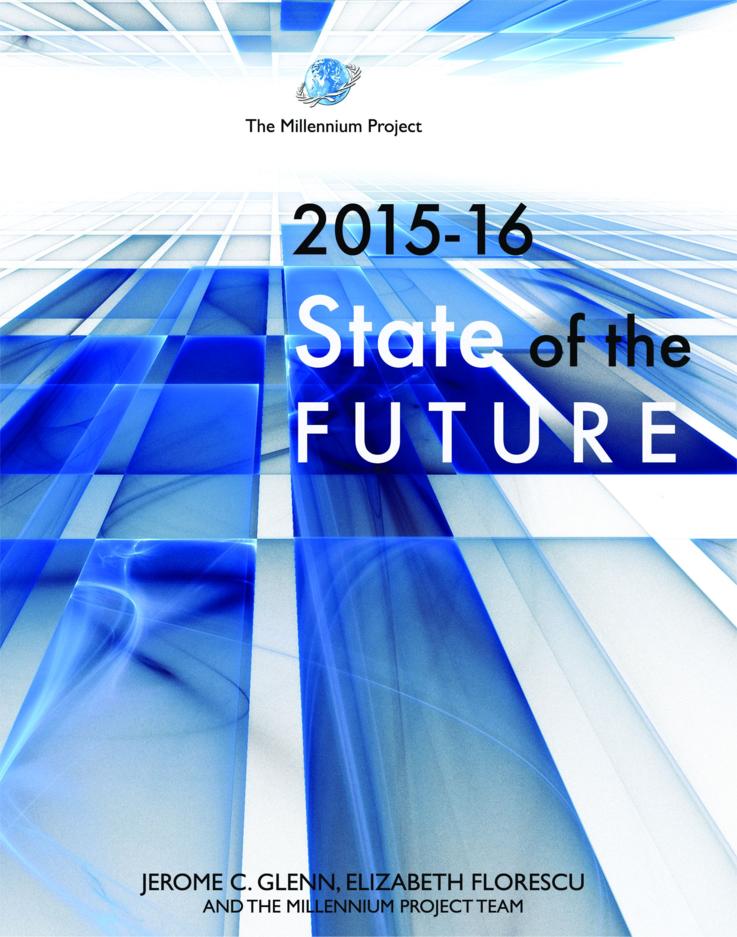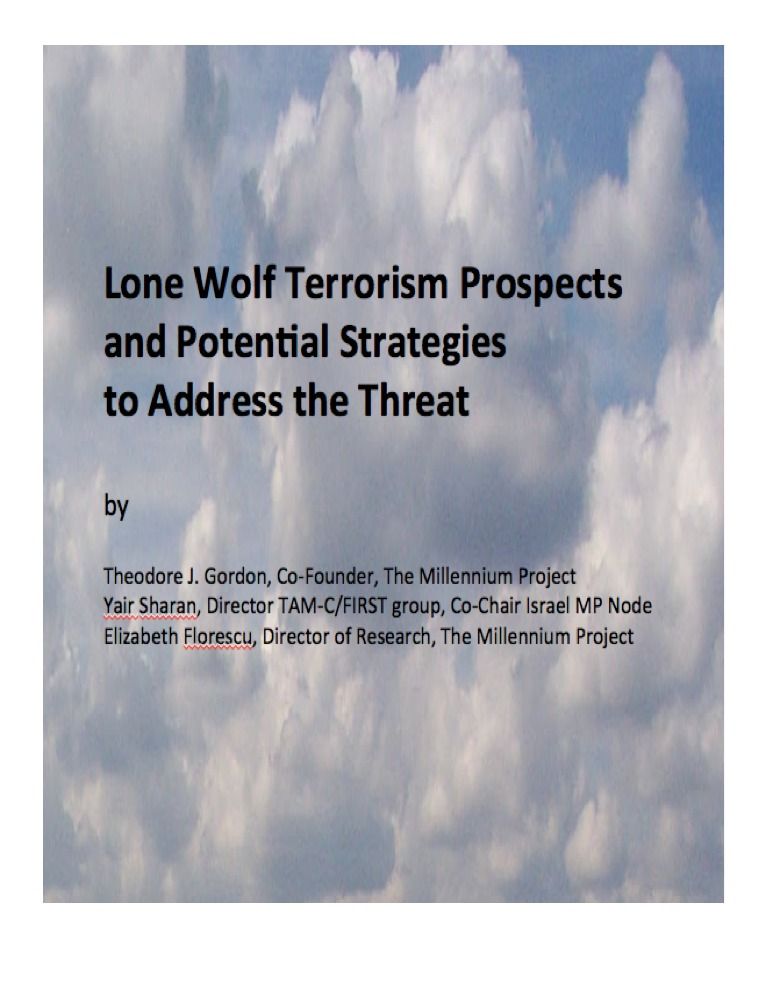The 2015–16 State of the Future is a compelling overview of humanity’s present situation, challenges and opportunities, potentials for the future, and actions and policies that could improve humanity’s outlook — in clear, precise, and readable text with unparalleled breadth and depth. “It is time for intolerance of irrelevant speeches and non-actions by leaders. The stakes are too high to tolerate business as usual”, warns the Executive Summary of the report.
A lucid, thought-provoking, strategically oriented exploration of the transforming world order.
Mihaly Simai, former Chairman, United Nations University
The State of the Future can make a difference in the world. Well done.
Wendell Bell, Professor Emeritus, Yale University
Global intelligence on the future of the world in the palm of your hand
KurzweilAI News
So important for many people around the world.
Eleonora Masini, former Secretary and President, World Futures Studies Federation
Absolutely worth the reader’s time… takes the reader much farther forward than most thinking.
Defense & Foreign Affairs Policy Journal
Strategic Planning for the Planet… remarkably articulate and prescient
Willian Halal, Foresight Journal
Authoritative compendium of what we know about the future of humanity and our planet.
The Futurist
Certainly, the guide to make better decisions and achieve success.
Julio Millán, President Coraza Corporación Azteca
Invaluable insights into the future for the United Nations, its Member States, and civil society.
Ban Ki-moon, Secretary-General, United Nations
The 2015–16 State of the Future brings together an extraordinarily diverse set of data, information, intelligence, and hopefully some wisdom about the future. This is the eighteenth edition of the State of the Future. We believe that each edition is better than the last. We update data, improve insights, and respond to feedback. You can add your feedback online at the Global Futures Intelligence System (themp.org). There is a comment icon in the lower right corner of the executive summary and the same for
every one of the 15 Global Challenges.
The short overviews of the 15 Global Challenges are getting longer and more detailed each year. In addition to giving you possibly the best overview in existence for each challenge, think of these as a reference to keep on your desk to return to as needed. Just as you would not speedread the encyclopedia, this section should also be taken in short doses. Take your time to reflect on what you are reading in each challenge and in the sections on the State of the Future Index and the Future Work/ Technology 2050.
This is the second year we have used the Global Futures Intelligence System to update and improve the State of the Future report. The challenges in GFIS are updated daily from news aggregations, scanning items, situation charts, and other resources, which has led to greater detail and depth than in the previous edition.
While this report presents the distilled results of recent research by The Millennium Project, GFIS contains the detailed background and data for that research, plus all of The Millennium Project’s research since its founding in 1996. It also contains the largest internationally peerreviewed set of methods to explore future possibilities ever assembled in one source. Readers of this report should subscribe to GFIS to keep up to date and participate in improving insights about future possibilities.
The purpose of futures research is to systematically explore, create, and test both possible and desirable futures in order to improve decisions. Just as the person on top of the mast on old sailing ships used to point out the rocks and safe channels to the captain below for the smooth running of the ship through uncharted waters, so too futurists with foresight systems for the world can point out problems and opportunities to leaders and the public around the world. Since decision-making is increasingly affected by globalization, global futures research is increasingly valuable for decision-making by individuals, groups, and institutions. The quality of democracies emerging around the world is enhanced by better-informed publics; understanding issues and opportunities in this report can contribute to improved democratic decision-making.
This report is for thought leaders, decision-makers, and all those who care about the world and its future. Readers will learn how their interests fit into the global situation and how the global situation may affect them and their interests. The State of the Future and GFIS provide an additional eye on global change. These are information utilities that
people can draw from as relevant to their unique needs. They provide an overview of the global strategic landscape. Business executives use the research as input to their strategic planning. University professors, futurists, and other consultants find this information useful in teaching and research.
The Millennium Project is a global participatory think tank of futurists, scholars, scientists, business planners, and policy makers who work for international organizations, governments, corporations, NGOs, and universities and who volunteer their time to improve each edition of the State of the Future. It was selected to be among the top
10 think tanks in the world for new ideas and paradigms by the 2013 and 2014 University of Pennsylvania’s GoTo Think Tank Index and as a 2012 Computerworld Honors Laureate for its innovations in collective intelligence systems.
The purposes of The Millennium Project are to assist in organizing futures research, improve thinking about the future, and make that thinking available through a variety of media for consideration in policymaking, advanced training, public education, and feedback, ideally in order to accumulate wisdom about potential futures.
The Project’s diversity of opinions and global views is ensured by its 56 Nodes around the world. These are groups of individuals and organizations that interconnect global and local perspectives. They identify participants, conduct interviews, translate and distribute questionnaires, and conduct research and conferences. It is through their contributions that the world picture of this report and indeed all of The Millennium Project’s work emerge.
Through its research, publications, addresses at conferences, and Nodes, The Millennium Project helps to nurture an international collaborative spirit of free inquiry and feedback for increasing collective intelligence to improve social, technical, and environmental viability for human development. Feedback on any sections of the book is most
welcome and may help shape the next State of the Future, GFIS, and the general work of The Millennium Project.

